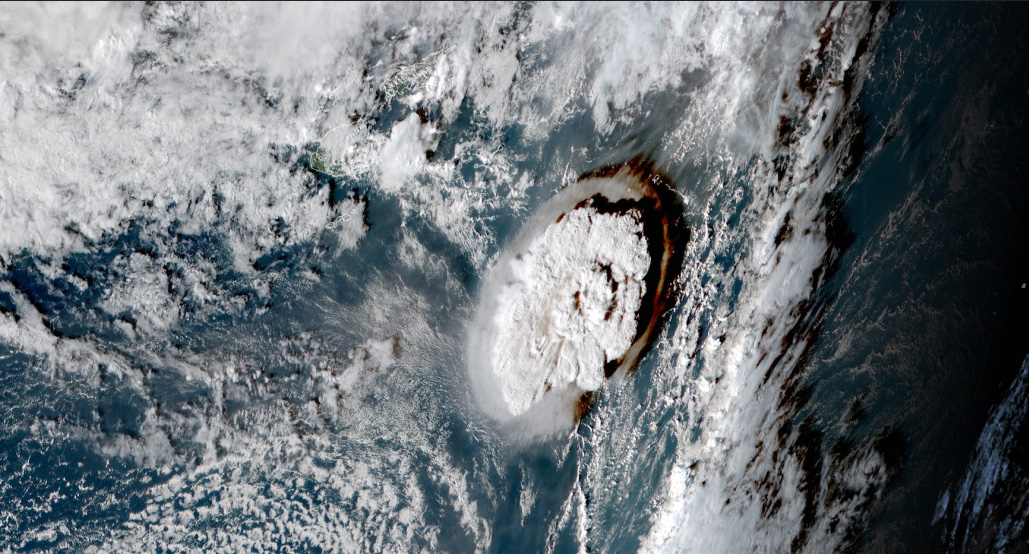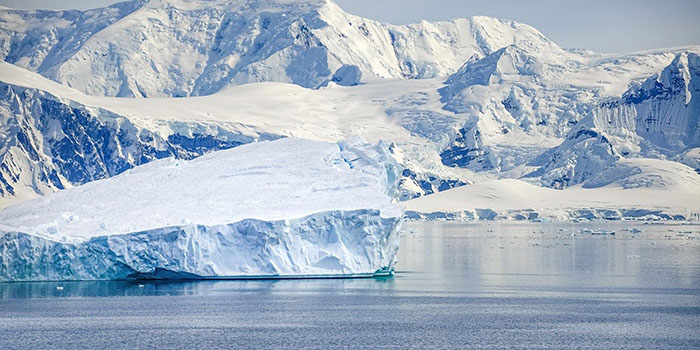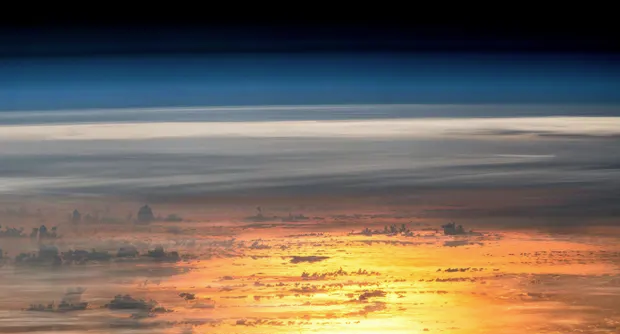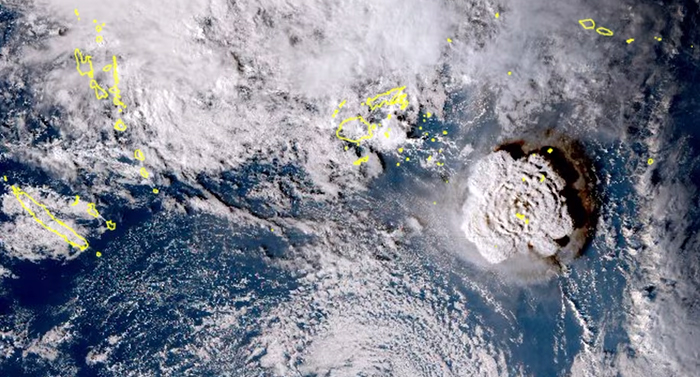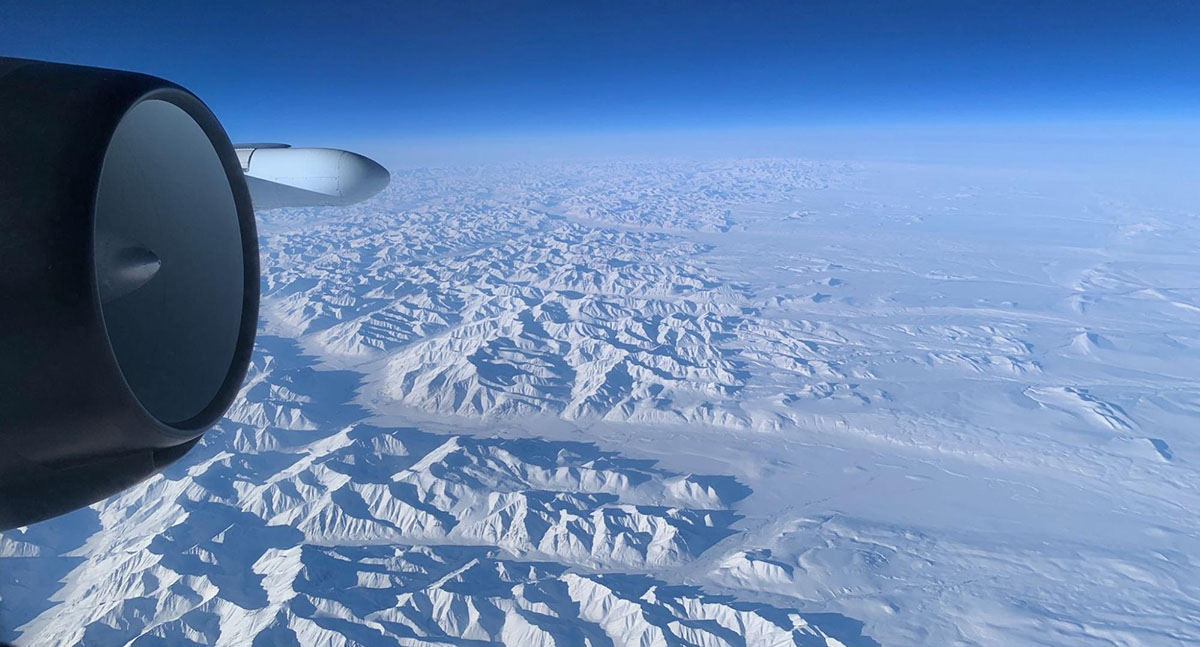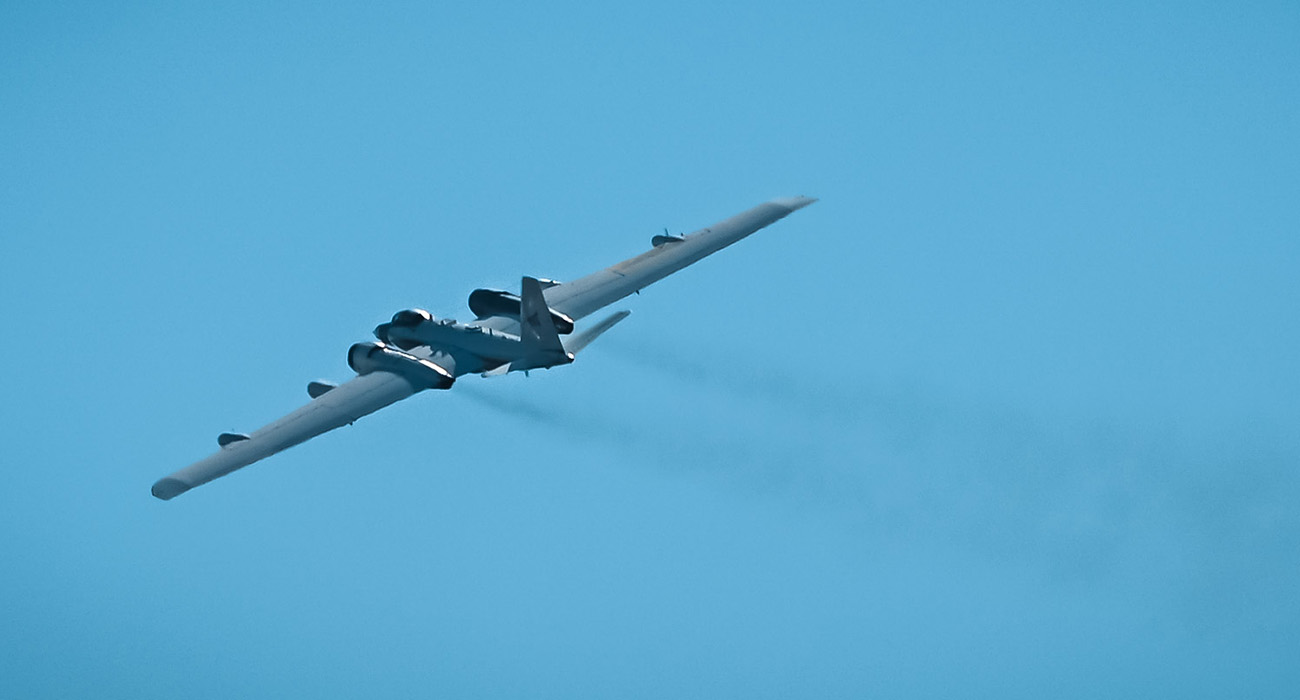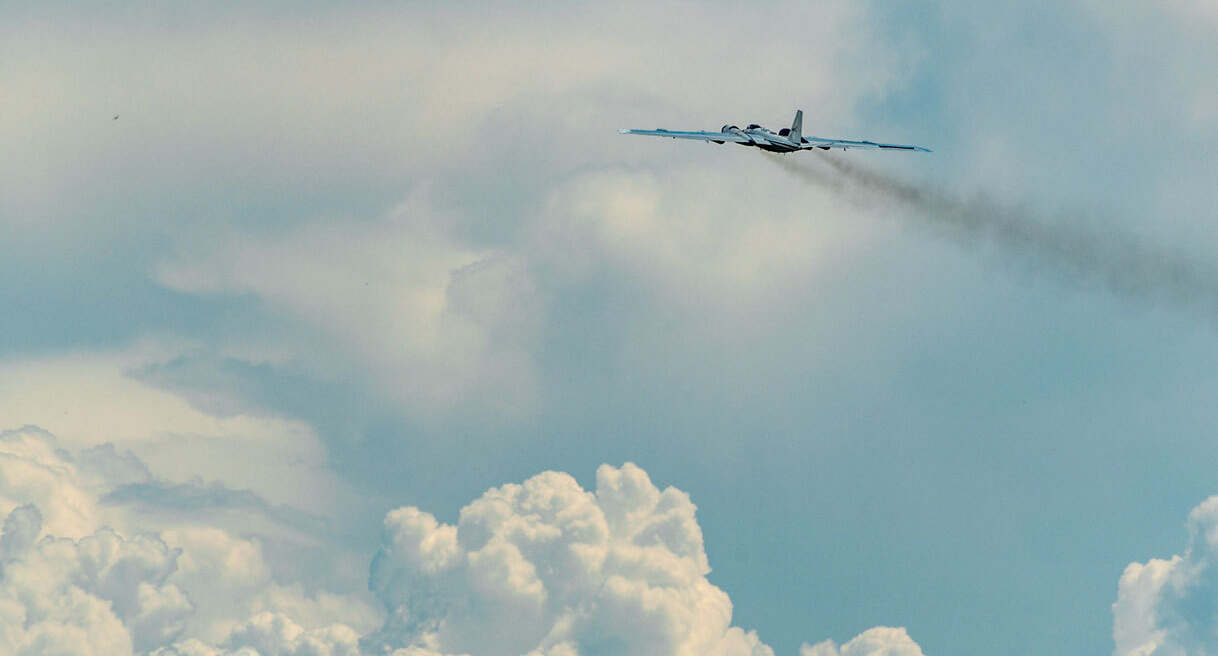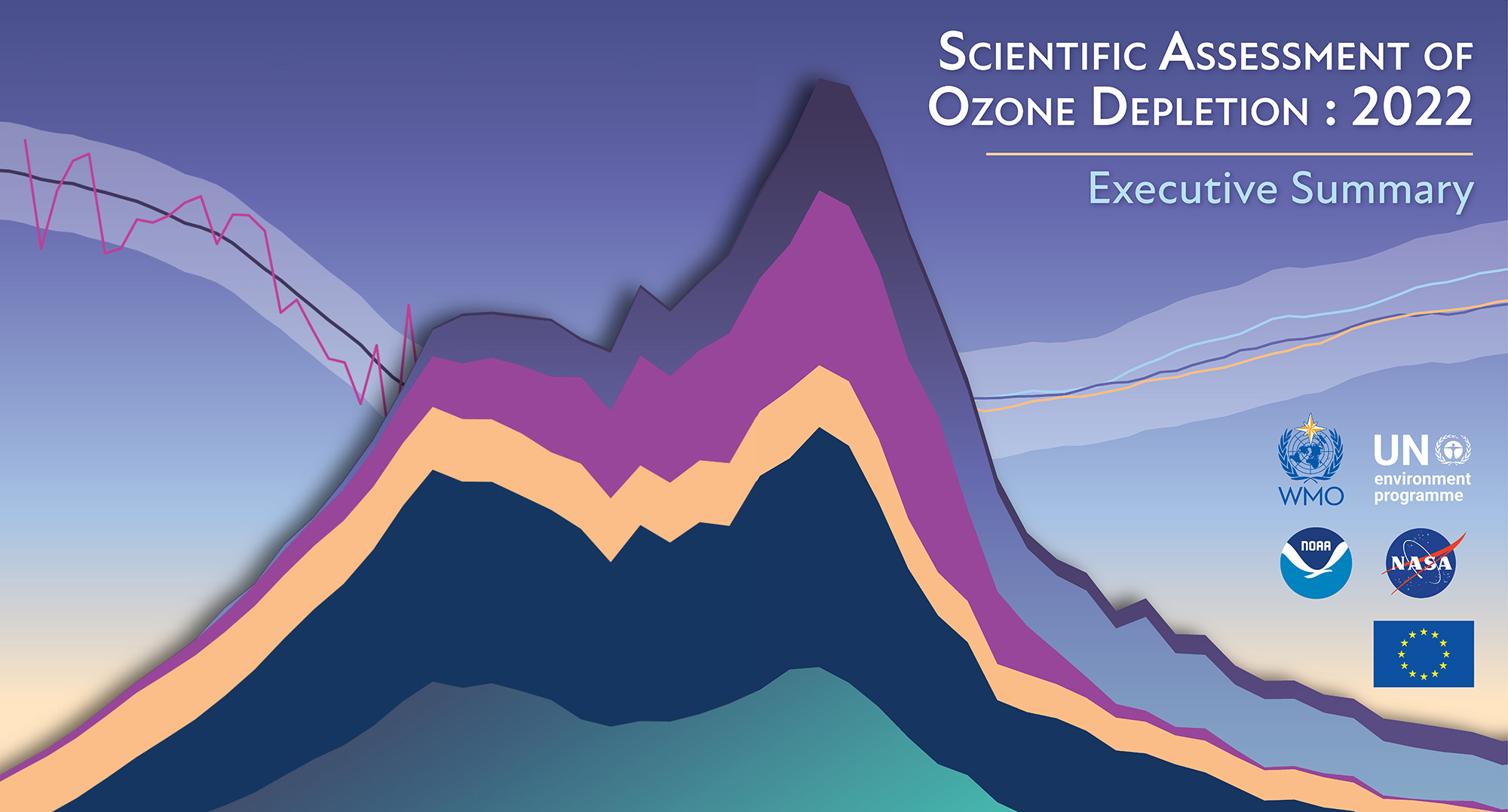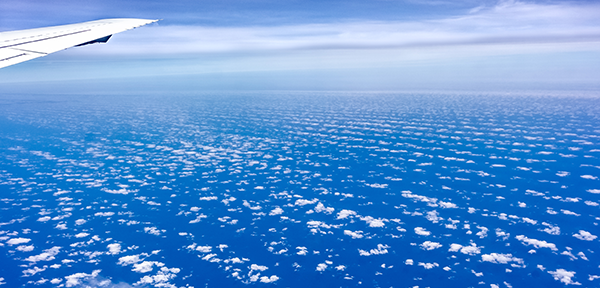In the News
A volcanic eruption sent enough water vapor into the stratosphere to cause a rapid change in chemistry
NOAA Chemical Sciences Laboratory, 20 December 2023
The eruption of the Hunga Tonga-Hunga Ha'apai volcano on 15 January 2022 produced the largest underwater explosion ever recorded by modern scientific instruments, blasting an enormous amount of water and volcanic gases higher than any other eruption in the satellite era. Read More
Can Solar Radiation Management Slow Antarctic Ice Melt?
NOAA Climate Program Office, 1 December 2023
A new study uses computer modeling to explore how solar geoengineering could slow Antarctic ice melt in the upcoming decades and centuries. Read More
For Stratospheric Aerosol Injection, All Strategies are Not Created Equal
NOAA Chemical Sciences Laboratory, 6 November 2023
A new study finds that injecting SO2 at higher latitudes, rather than in the tropics, could mitigate some undesirable side effects of SAI – but all options come with trade-offs. Read More
This volcanic eruption reached so high it depleted the ozone layer
The Washington Post, 19 October 2023
The Hunga Tonga-Hunga Ha’apai eruption in January 2022 was so intense that it partially depleted Earth's ozone layer in the following weeks – marking the first time on record that scientists observed such a rapid and strong decrease of ozone miles above our heads resulting from volcanic activity. Read More
NOAA scientists link exotic metal particles in the upper atmosphere to rockets, satellites
NOAA Chemical Sciences Laboratory, 16 October 2023
NOAA scientists investigating the stratosphere have found that in addition to meteoric 'space dust,' the atmosphere more than seven miles above the surface is peppered with particles containing a variety of metals from satellites and spent rocket boosters vaporized by the intense heat of re-entry. Read More
NOAA research in the stratosphere is taking off
NOAA Research, 2 March 2023
A major airborne research mission of the stratosphere is underway in Alaska. Read More
Could solar geoengineering cool the planet? U.S. gets serious about finding out
Science, 14 February 2023
Campaign seeks to understand reflective particles in the stratosphere, which cooling schemes would enhance. Read More
Montreal Protocol emerges as a powerful climate treaty
NOAA Chemical Sciences Laboratory, 11 January 2023
A new report from the United Nations confirms that the recovery of Earth's protective ozone layer is on track. Read More
DOE-NOAA Marine Cloud Brightening Workshop Report
NOAA Climate Program Office, 9 December 2022
MCB workshop assessed the state of knowledge in the field, and provides a possible research path toward reducing unknowns in key components of the underlying physical science. Read More
Eruption provides rare opportunity to study volcanic gas and ash injected into the stratosphere
NOAA Chemical Sciences Laboratory, 20 January 2022
Scientists travel to La Réunion to intercept the plume from the Tonga volcano eruption. Read More
